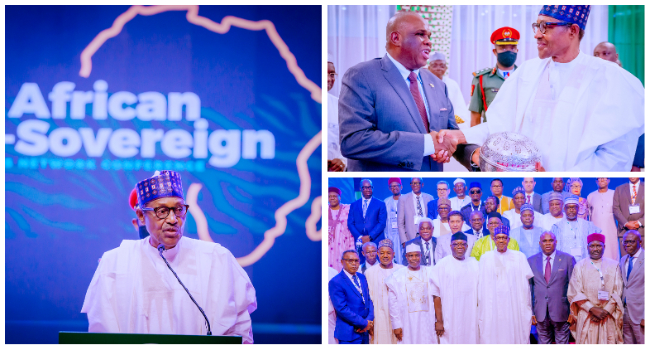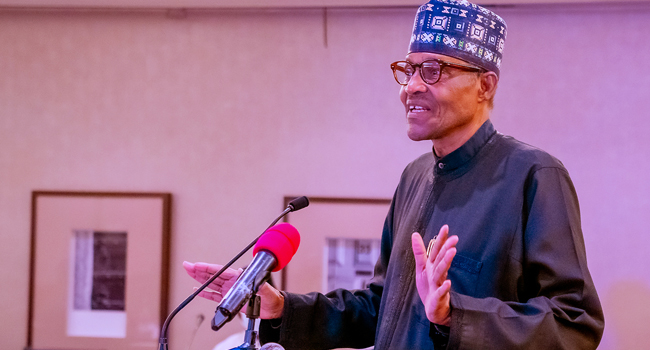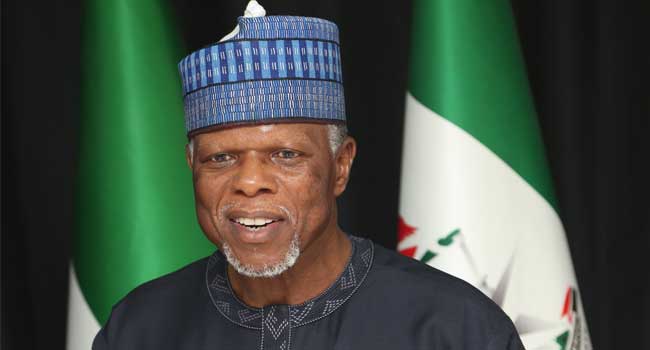About 15 months after the African Continental Free Trade Area (AFCFTA) agreement was signed in Rwanda, the presidential committee on impact and readiness assessment has recommended that Nigeria sign the agreement.
The recommendation came in a report presented to President Muhammadu Buhari on Thursday, June 27.
In his acceptance address, the said that though agreements negotiated will create business opportunities for Africa, still, they cannot be rushed into without full and proper consultations with all stakeholders.
He noted that Nigeria’s position is very simple, stressing that the nation supports free trade as long as it is fair and conducted on an equitable basis.
Below is the President’s full address on formally receiving the AFCFTA report.
READ ALSO: Top Eight Duties Assigned To RMAFC By President Buhari
“ADDRESS BY HIS EXCELLENCY MUHAMMADU BUHARI, PRESIDENT, FEDERAL REPUBLIC OF NIGERIA, AT THE FORMAL ACCEPTANCE OF THE REPORT OF THE COMMITTEE TO ASSESS IMPACT AND READINESS FOR THE AFRICA CONTINENTAL FREE TRADE AREA AGREEMENT (AFCFTA) ON THURSDAY, 27TH JUNE 2019
PROTOCOLS –
It is my pleasure to welcome all of you to this occasion to receive the report on the impact of the African Continental Free Trade Area (AfCFTA) and Nigeria’s readiness for it.
It has been over a year now since the African Union Heads of States adopted the Phase I Agreement on the African Continental Free Trade Area (AfCFTA) at its 10th Extraordinary Summit in Kigali, Rwanda, on 21st of March 2018.
Since then, a lot has been said about Nigeria’s decision to conduct a detailed study on how this agreement will impact us as a country.
Let me state unequivocally that trade is important for us as a nation and to all nations. Economic progress is what makes the world go around.
Our position is very simple, we support free trade as long as it is fair and conducted on an equitable basis.
The AfCFTA will have both positive and negative effects on us as a nation and on our region.
As Africa’s largest economy and most populous country, we cannot afford to rush into such agreements without full and proper consultation with all stakeholders.
As you mentioned in your report, intra-African trade is only 14% of Africa’s total trade. Our consumption is mostly of goods imported from outside the continent.
For AfCFTA to succeed, we must develop policies that promote African production, among other benefits.
Africa, therefore, needs not only a trade policy but also a continental manufacturing agenda. Our vision for intra-African trade is for the free movement of “made in Africa goods”. That is, goods and services made locally with dominant African content in terms of raw materials and value addition.
If we allow unbridled imports to continue, it will dominate our trade. The implication of this, is that coastal importing nations will prosper while landlocked nations will continue to suffer and depend on aid.
As I stated during the inauguration of this Committee, many of the challenges we face today, whether security, economic or corruption are rooted in our inability, over the years, to domesticate the production of the most basic requirements and create jobs for our very vibrant, young and dynamic population.
Henceforth, we shall ensure that our negotiated agreements create business opportunities for Africa’s manufacturers, service providers and innovators.
The AfCFTA we aspire to have should therefore not only create wealth for investors but also jobs and prosperity for our vibrant and hardworking citizens. The benefits of economic growth must be prosperity for the masses.
I am very delighted to receive your report today and with the time spent, skills applied and energy invested, I am confident that the Committee has been thorough and diligent.
Let me assure you that your report will form part of the consideration in our decision on the next steps on the AfCFTA in particular and on broader trade integration subjects.
Let me congratulate all members of the Committee for the work done. I thank all stakeholders and organizations including our development partners that provided support to the Committee in one form or another.
I thank you.”





